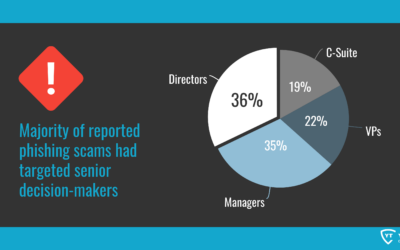In today’s interconnected world, where technology and the internet have become integral parts of our lives, the need to protect our digital realm has never been more critical. Enter the Computer Cyber Crime Unit (C3) of the Niagara Regional Police Service, a team of digital detectives dedicated to upholding justice in the virtual landscape.
Digital Detectives at Work
In the age of cyber threats, the C3 acts as the shield against these invisible dangers. Leveraging cutting-edge technology, they play a crucial role in aiding investigations, and assisting officers to navigate the complex world of digital evidence. Whether it’s tracking down suspects, identifying persons of interest, or unearthing crucial witnesses, their expertise is pivotal in solving cases.
Gathering Clues in the Digital Maze
From open source evidence to digital intelligence, the C3 team is skilled in collecting and analyzing vital information online. Their proficiency in this domain not only assists in ongoing investigations but also contributes to proactive crime prevention strategies.
Bridging the Gap between Real and Virtual
One of the remarkable aspects of C3’s work is their ability to bring the digital and physical worlds closer together. They help pinpoint crime scenes and event locations through digital means, effectively bridging the gap between the tangible and intangible.
Combatting Cyber Threats
The C3’s role extends beyond investigation support. They actively tackle cyber threats against the Niagara Police Service and the community at large. Their efforts ensure that officers and citizens are safe from the ever-evolving landscape of cybercrime.
Defining Cybercrime
Cybercrime is a broad term that encapsulates offenses targeting technology itself or using technology as a tool. From data theft to internet-based harassment, these crimes occur in the digital realm and often pose complex challenges for law enforcement.
Champions of Cyber-Security
In addition to their investigative duties, the C3 team takes on the role of cyber-security crusaders. They advocate for digital security best practices, encouraging individuals and businesses to use strong passwords, maintain up-to-date software, and adopt two-factor authentication to fortify their digital defenses.
Quick Cyber Tips
To bolster your own cyber security, here are some quick tips:
- Keep software and hardware up to date.
- Use antivirus and firewall software.
- Utilize strong, unique passwords, or consider a password manager.
- Implement two-factor authentication for added security.
- Exercise caution when dealing with emails and phone calls; think before you click.
- Verify requests for money before complying.
- Secure your mobile devices to prevent unauthorized access.
- Regularly back up your data to prevent data loss.
Common Cyber Threats
Some common cyber threats include:
- Data breaches
- Phishing attacks
- Ransomware attacks
- Unauthorized use of computers
- Denial of Service (DoS) attacks
For more information on the work of the C3 unit and cyber security resources, you can visit the Niagara Regional Police website.
🛡️🌐 #CyberCrimeUnit #DigitalDefenders #TechProtectors
Cities We Serve in Hamilton, Halton, and Niagara
- Grimsby, ON
- Welland, ON
- Hamilton, ON
- Burlington, ON
- Niagara Falls, ON
- Port Colborne, ON
- St. Catharines, ON
- Fonthill, Pelham, ON
- Vineland, Lincoln, ON
- Stoney Creek, Hamilton, ON
- Beamsville, Lincoln, ON
- Pelham, ON
- Wainfleet, ON
- West Lincoln, ON
- Smithville, ON
- Fort Erie, ON
- Thorold, ON
- Niagara-on-the-Lake, ON




